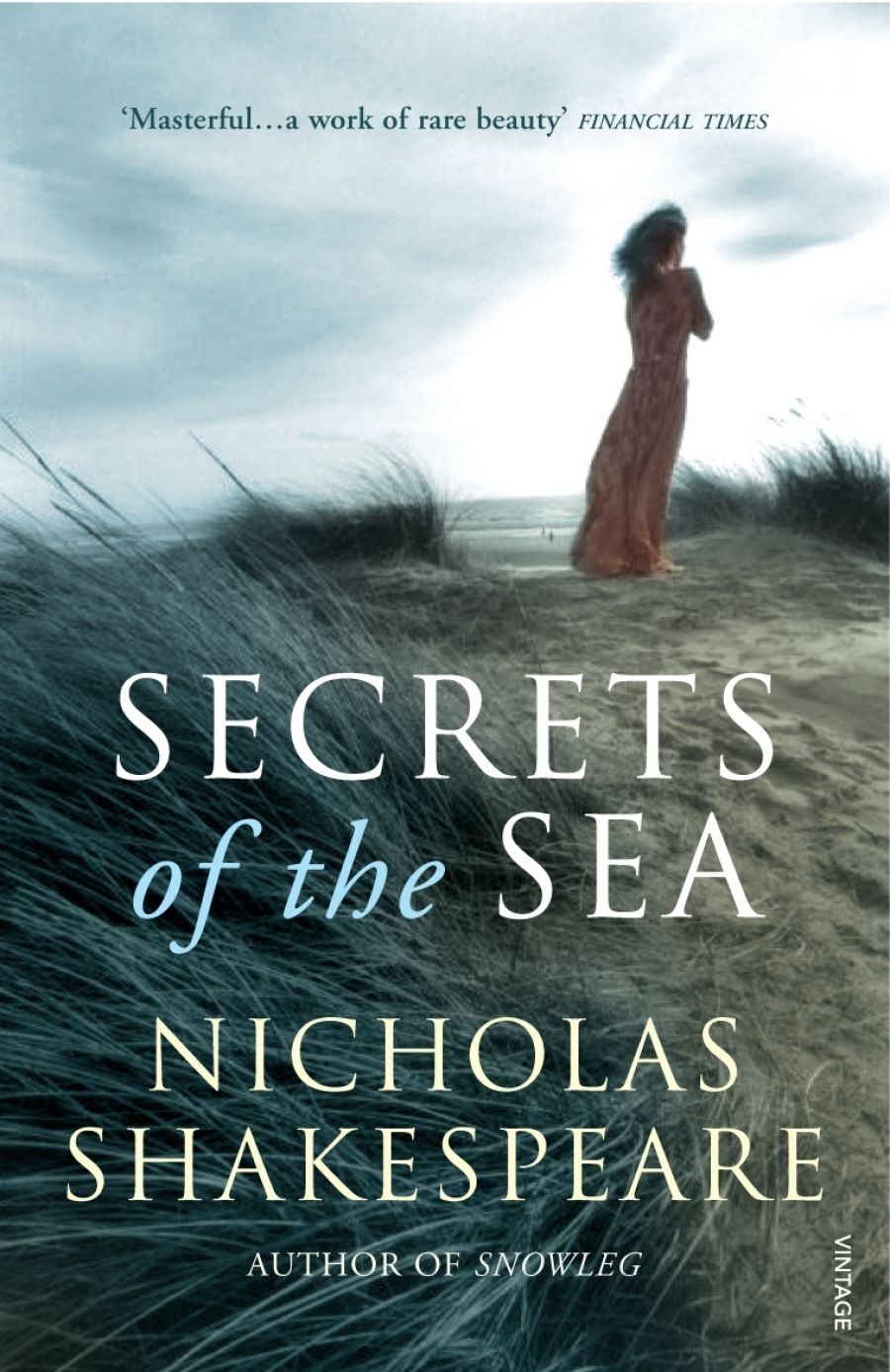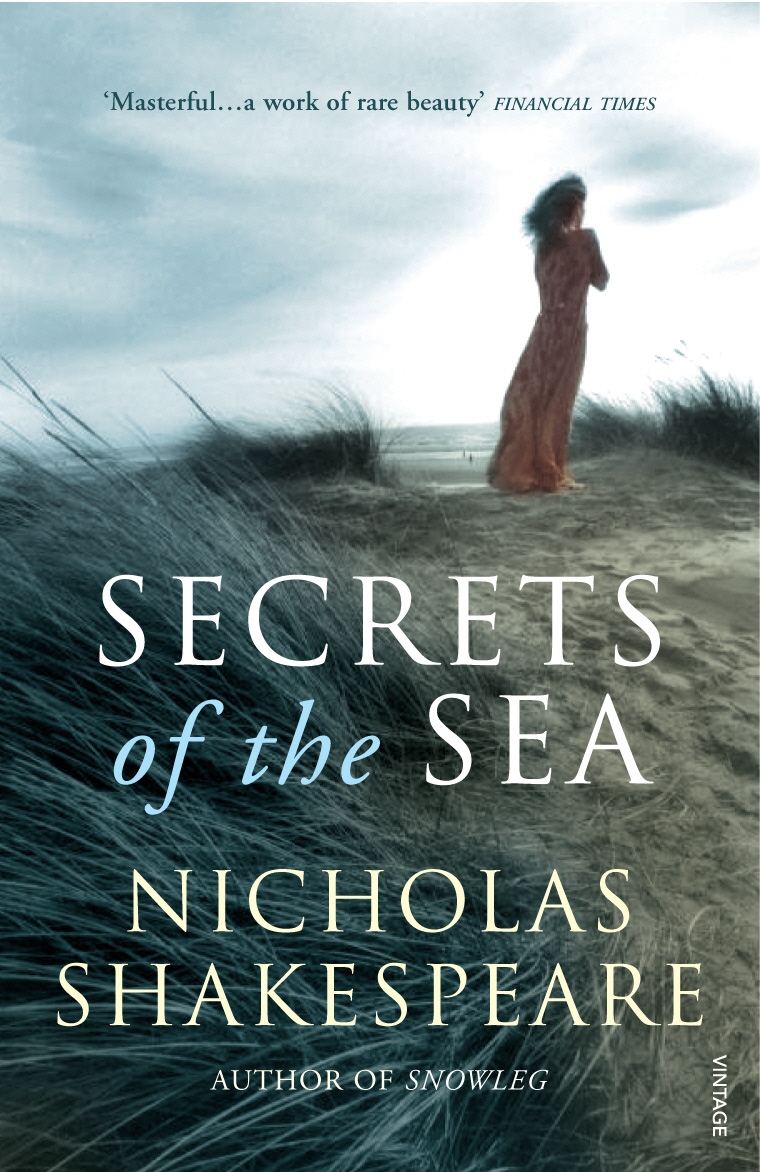
- Free Article: No
- Contents Category: Fiction
- Review Article: Yes
- Online Only: No
- Custom Highlight Text:
Not long after he began to spend extended periods on the island, English novelist Nicolas Shakespeare wrote In Tasmania (2004), a spirited account of some of the things that he had seen and been told there. This was a rambling book, whose intention seemed unresolved. With his fifth novel, Secrets of the Sea, Shakespeare has made Tasmania his setting again. Manifold details are refined for the story, with more assurance than in the earlier book. Impressively, Shakespeare has created an unfamiliar place, alert to caricatures of itself, but much stranger. At the same time, his Tasmania seems to belong more to England than ever used to be said, and to the fictional realms of Thomas Hardy and D.H. Lawrence.
- Book 1 Title: Secrets of the Sea
- Book 1 Biblio: Harvill Secker, $32.95pb, 402pp
- Book 1 Cover Small (400 x 600):

- Book 1 Cover (800 x 1200):

Shakespeare shares with these writers a deep and compelling gift for story: invention as well as telling. The novel’s odd and unsettling events unfold in ways that always convince with their inevitability. Some of them can be related without prejudice. To the small town of Wellington Point on Tasmania’s east coast, across the bay from Swansea, comes nineteen-year-old Merridy Bowman (the novel begins in 1988). Her estranged parents have reunited after the father was electrocuted; now he is dying. Her cousin, Tildy, who grew up with Merridy on the north-west coast, also lives in the town where her father is a hotel licensee. Here also is the Oxford-educated Alex Dove, who came back to run his parents’ property at Moulting Lagoon Farm. They died when he was eleven, victims of that emblematic Tasmanian villain: a speeding log truck.
When, by chance, Alex glimpses Merridy climbing a fence, he comes to believe that ‘his life, halted at the age of eleven by the accident, began humming again at that moment’. They exchange the stories of their lives, as Shakespeare commences his depiction of their lopsided, long-lasting love story. Alex’s father was a latter-day remittance man who took to gin and fitting model ships into bottles. Merridy’s parents’ negligent kindness is all that Alex has to remember. Their example is one that he resists in his own life. Merridy’s father, a mechanical engineer, married a rigorous Methodist, more or less happily until the disappearance of Hector, their son. Shakespeare gives a poignant variation of one of the fundamental Australian stories, that of the lost child. Part of its burden, especially in nineteenth-century iterations, had been to suggest how unfitted to this place Europeans were. For Merridy, it is simpler: ‘half of her, was no more.’
Wellington Point may always regard Merridy and other outsiders as blow-ins, however long they stay, but settle she does in this insular coastal community. Secrets of the Sea is one of a cluster of recent Australian novels (though the adjective does not fully fit what Shakespeare does) set on the littoral and away from large cities. Shakespeare sketches a complicated supporting cast, far from the parochial, particularly Tasmanian stereotype. There is Albert Talbot, a former World War II coast-watcher, now proprietor of the town store. Quietly, he invigilates the lives of others. Alex’s nemesis, Ray Grogan, marries Tildy and, in due course, will be sufficiently notorious in his business to gamer the nickname, ‘the David Boon of real estate’. Filaments of the social life of Wellington Point are expressed through interpolated items from Talbot’s newsletter, a narrative device that feels a touch patronising.
But this is all background. Shakespeare’s deepest instincts as a novelist have led him to explore the apartness of people, the chance and mischance of their meetings, the costs of their separations. This was the emotional territory of his previous novel, Snowleg (2004), whose physical and political location was East Germany. Married to Alex, though without declaring love, Merridy feels on the one hand that ‘[i]t was essential not to hurt him’, but on the other likens herself to the penny that she has managed to insert into a bottle, ‘squeezed by a force beyond her comprehension into an impossibly tight and airless space’. The second part of the novel opens with a solemn and ominous cadence: ‘For a great many months there was nothing wrong with their marriage.’ And then there is this: ‘Wild flames they were her lips and hands, but her heart was dark to him.’ Homage to Lawrence, indeed; it is almost as if we have The Rainbow in Tasmania.
Not that Shakespeare is captive to such an influence. In the second half of Secrets of the Sea, he strikes out in new and invigorating directions. An encounter with the enigmatic Joseph Silkleigh, who seems to Merridy to be her ‘deux et aqua’, seeds in her the idea of oyster fanning. Cannily deployed by Shakespeare to make unexpected connections of plot, Silkleigh has two brilliant cameos in the novel. Another key event in its second half concerns the shipwreck of a replica brigantine, crewed by delinquents whom the voyage is meant to rehabilitate. Alex and Merridy save the disturbed youth Kish (another striking portrait of damage and solitariness), whose arrival will trouble their lives. Readers can continue unassisted. Shakespeare has written an eloquent, melancholy, patiently artful and wholly absorbing novel which will, by local circumstances that no doubt by now he well understands, fix him more securely as a world author than as an Australian one.


Comments powered by CComment